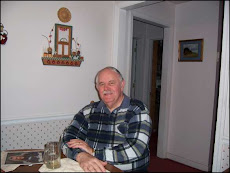It would not be correct to assert that Edwards here spoke with complete impartiality; he did champion the cause of the revival, earnestly pleading its validity and divinity. Yet even in these exciting days of 1741 a power of discrimination is evident in Edwards which later was given fuller and freer expression. In Distinguishing Marks, Edwards dismissed as irrelevant such things in the revival as its extraordinary intensity, its effects "on the bodies of men," its showy, noisy religiousness, its effects upon men's imaginations, and the irregularities, disorders, and errors of some who were associated with it.
These things may, we know from Scripture, accompany a divine work; on the other hand, Edwards stated, they have appeared in situations that were not of God's doing. They are then not trustworthy criteria by which one may judge the contemporary religious scene. Arguing closely from his text, I John 4, Edwards presented a positive statement of valid criteria.
The "distinguishing marks" were five: a true revival
(1) will cause a greater esteem for Jesus (I John 4:2),
(2) will operate against the interest of Satan (4:4, 5),
(3) will cause a greater regard for scripture (4:6),
(4) will lead persons to truth, convincing them of those things that are true (4:6), and
(5) "operates as a spirit of love to God and man" (4:7 f).
From his "trial of the spirit" then rushing throughout New England, Edwards judged "that the extraordinary influence that has lately appeared causing an uncommon concern and engagedness of the mind about the things of religion is undoubtedly, in general, from the Spirit of God."8
The "distinguishing marks" were five: a true revival
(1) will cause a greater esteem for Jesus (I John 4:2),
(2) will operate against the interest of Satan (4:4, 5),
(3) will cause a greater regard for scripture (4:6),
(4) will lead persons to truth, convincing them of those things that are true (4:6), and
(5) "operates as a spirit of love to God and man" (4:7 f).
From his "trial of the spirit" then rushing throughout New England, Edwards judged "that the extraordinary influence that has lately appeared causing an uncommon concern and engagedness of the mind about the things of religion is undoubtedly, in general, from the Spirit of God."8
Extended among so many places and over so many months, the revival cannot be a pretense or delusion. As far as the Northampton experiences are concerned, "we must throw by all talk of conversion and Christian experience; and not only so, but we must throw by our Bibles, and give up revealed religion; if this |be not in general the work of God."9 In view of this judgment, the commencement speaker warned all "by no means to oppose, or do any thing in the least to clog or hinder, the work; but, on the contrary, do our utmost to promote it." In the coldest, darkest corner of New England, by New Light standards, Edwards had defended the Great Awakening and had spoken harsh words to any that tried to thwart it. He was never invited back.
COMMENTS ON REVIVAL BY JONATHAN EDWARDS
IN DISTINGUISHING MARKS
(From THE GREAT AWAKENING IN NEW ENGLAND, EDWIN SCOTT GAUSTAD, Quadrangle Books Edition 1968)
(From THE GREAT AWAKENING IN NEW ENGLAND, EDWIN SCOTT GAUSTAD, Quadrangle Books Edition 1968)



6 comments:
Sharing some thing is better than keeping up-to our self, thus the YouTube video that is posted at this place I am going to share by means of my relatives and colleagues.
Thanks! I think I understand you. You found a You Tube video that expands on these thoughts.Correct? If so, i would advise you to dig deep on everything you read about Jonathon Edwards. He was truly one of the greatest theologians that ever lived. I hope you will come back again and visit other of our articles on these three blogs. Thanks again.
Hi friends, its wonderful piece of writing regarding tutoringand fully explained, keep it up all the time.
Thanks for your kind comments. Yes, Jonathon Edwards was a very outstanding theologian. Perhaps he was America's best. What he uttered on revival should be heeded. He saw REAL revival in his day. Surely he know the pros and cons of it. It is well sure that we need it as bad in the 21st century as they did in the 18th century. Let us pray for it!
Today is documentation ill, isn't it?
I did not entirely understand your comment. Perhaps you left something off. Maybe you could come back and explain. Anyway, I think you liked the writing by Jonathan Edwards. He was such a gifted man, and has much we can learn from for our Christian life. Please come back and explore our sites, and please comment again. Thanks!
Post a Comment